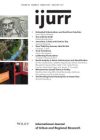The focus of this article, on everyday life management, emerges from a theoretical discussion about culturally specific attitudes to environmental health. Local perceptions of purity and dirt in an urban shantytown of Lagos, Nigeria, are examined through a case study of the Amukoko urban district. The qualitative data is from two fieldwork phases carried out in 1998 and 2001 in Lagos, consisting of eleven in‐depth interviews, eight focus group discussions and participatory observations among Yoruba women and men. In different communities, perceptions of purity and dirt are not self‐evident in terms of their meaning, but reflect the commonly shared values and moral codes of the community. Our principle interest is in the ways in which household water is construed as pure, particularly in the context of daily routines which reveal how the avoidance of pollution and the order of things are organized in the community. These constructions of purity comply with local perceptions of dirt, sanitation and environmental risks within the wider health care practices prevalent in the mixed and hybrid urban culture of metropolitan Lagos. Results imply that reformulated definitions of sanitation, for example between disposable and non‐disposable elements, are adopted via culturally specific perceptions of purity.
Details
Written by:
MARJA JÄRVELÄ, EVA‐MARITA RINNE‐KOISTINEN
Digital Object Identifier (DOI)
10.1111/j.1468-2427.2005.00590.x
About DOI
Read full article as PDF
Read full article as HTML
See the references for this article
